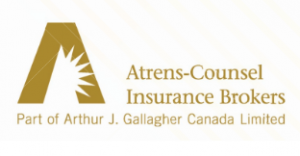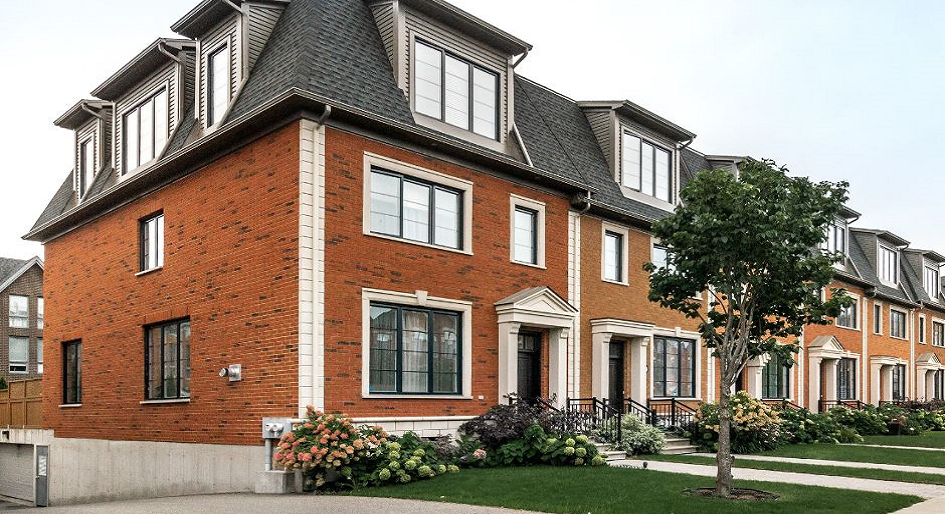It’s a common scenario: a homebuyer purchases what appears to be a regular townhome only to be told it classifies as a “freehold condominium.” This can be a confusing descriptor, but it technically holds true. The term “freehold” is frequently used as a marketing strategy to suggest purchasers are getting more than they would ordinarily receive when buying a unit, such as a front or back yard. That being said, a more accurate term for these types of condominiums would be a “lot line” condominium where the owner’s unit includes not just the building but also a portion of the land surrounding it.
 Regardless of the marketing terms used to describe your condo unit, when you are setting up your personal insurance you should be most concerned if your condo is classified as a standard registration and what is indicated in your condominium’s unique standard unit description.
Regardless of the marketing terms used to describe your condo unit, when you are setting up your personal insurance you should be most concerned if your condo is classified as a standard registration and what is indicated in your condominium’s unique standard unit description.
It is important to note that the most common kind of condo registration in the province of Ontario is a standard registration. If a condominium is not described as a “Common Element Condominium” or a Vacant Land Condominium” within the registered name of your condominium, then it is highly likely it is a standard registration condo.
Who insures a freehold?
Freehold or lot line condos carry unique maintenance obligations, and this is where confusion over insurance can set in. Specifically, freehold or lot line condo declarations often hold owners more responsible for the ongoing repair and maintenance of lot elements (e.g., roof, building envelope, driveway, trees, etc.).
Reading this, owners then might assume that they need insurance to cover any sudden or accidental damage that occurs on their lot, but that is often not the case. In truth, the Condominium Act of Ontario states that if a condominium is a “standard registration condominium,” then the condominium corporation is required to insure the common elements and the units, but not any improvements to the units. That includes the actual homes and any other common corporation property such as curbs, roadways, and light standards. Moreover, condominium corporations must insure a basic level of finishes within each home, as described by the condominium’s standard unit bylaw. As such, it is critical to pay attention to your corporation’s standard unit bylaw to understand what materials and finishes are considered part of a standard unit, and thus insured by the condo. Anything over and above those standard finishes and materials need to be insured by the owner under a condo unit owner policy and are commonly referred to as betterments or improvements.
The right policy
 One question we get from owners of freehold or lot line condos is “What kind of insurance do I need?” The answer is that you should not be purchasing a standard home insurance policy, but rather a condominium unit owners’ insurance policy. This requires bringing a copy of your standard unit bylaw to your insurance broker and understanding what’s covered.
One question we get from owners of freehold or lot line condos is “What kind of insurance do I need?” The answer is that you should not be purchasing a standard home insurance policy, but rather a condominium unit owners’ insurance policy. This requires bringing a copy of your standard unit bylaw to your insurance broker and understanding what’s covered.
Overall, anything inside your unit that is not described in the standard unit bylaw is your responsibility to insure. As such, you should be sure to include the replacement value of any of those finishes or features (over and above what is listed in the bylaw) within your own betterments limit of insurance in your unit owners’ insurance policy.
To review, condominium unit owners are responsible for the following:
• Personal property: such as furniture, clothing, appliances, electronics, any moveable property within the unit, all personal effects stored in lockers, etc.
• Improvements or Betterments: such as moldings, lighting, flooring, upgraded cabinetry, and anything over-and-above what is described in the standard unit bylaw.
• Additional costs to live elsewhere: if your unit is so badly damaged that you cannot occupy it until repairs are complete.
• Personal liability: condo owners are legally liable for any bodily injury or property damage arising out of their personal activities as a unit owner and from the ownership
of your individual property.
• Charge back of corporation deductible: unit owners may be responsible for the deductible under the Corporation’s Insurance Policy if the corporation has a bylaw that dictates this, or if the owner’s act or omission results in damage to any property the corporation is responsible for insuring.
• Loss assessment coverage: if there is a major property or liability event that results in a shortfall in your condominium corporation insurance, you may be personally assessed as a unit owner.
• Additional unit owner protection: a unit owner policy should contain additional contingent protection to cover grey areas between the condo’s insurance and your own.
• Special limits and extensions of coverage: there may be other special limits of coverage required for jewelry, bicycles, sewer backup, and other exposures that may exist.
Your condo’s standard unit bylaw, like many others, may also indicate that the unit owner must insure all of their floor coverings. If this is the case, be sure to include the replacement cost of all floors above the sub-floor within your betterment limit of your own policy as well.
Avoid mismatched policies
If you purchase a regular homeowners policy to insure your property in a standard registration condo, you are making a big mistake. Not only will you have double coverage for a lot of the property that your condo already insures, but you could also be paying up to four times what you would for a condo unit owner’s policy. Additionally, you will be missing key elements of coverage that you need based on exposures you have as a condominium unit owner.
It pays to get advice
The insurance requirements for a condo unit owner can be complex depending on the unit owner’s needs and their specific condominium bylaws. That’s why we strongly recommend working with an insurance broker that understands the complexities of condominium insurance and can recommend the right protection for you.

Learn more at Atrens-Counsel Insurance Brokers.







